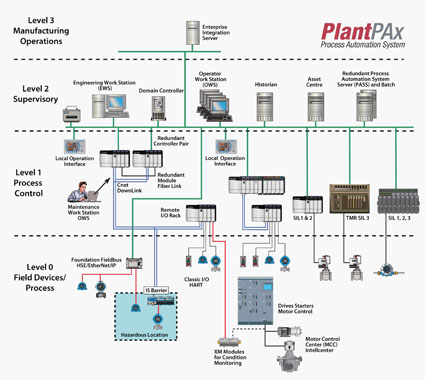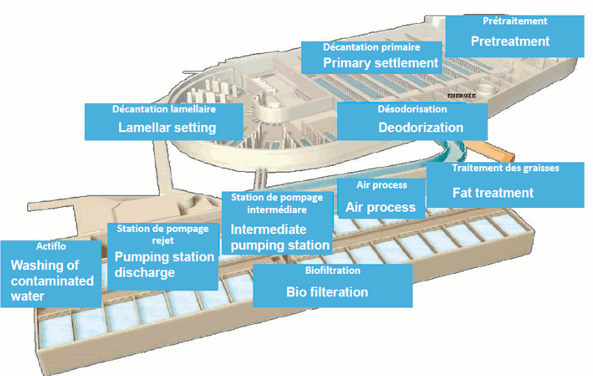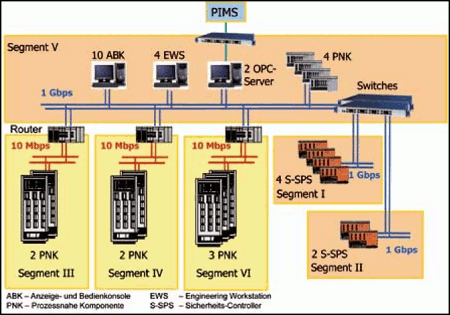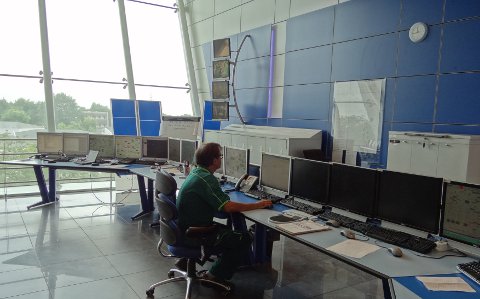 Case Study: Ripon Cogeneration, which helps supply energy to homes and businesses throughout most of northern and central California, achieved unprecedented plant performance – including a 30 percent reduction in start-up time – by replacing its obsolete distributed control system (DCS) with the PlantPAx process automation system from Rockwell Automation.
Case Study: Ripon Cogeneration, which helps supply energy to homes and businesses throughout most of northern and central California, achieved unprecedented plant performance – including a 30 percent reduction in start-up time – by replacing its obsolete distributed control system (DCS) with the PlantPAx process automation system from Rockwell Automation.
With the addition of the new system, Ripon has reduced the number of nuisance trips nearly 90 percent. Multiple fail-safes were hard-coded into the previous DCS, so even small deviations in process variables would trip the entire system offline and force the 50-megawatt-capacity plant to shut down. Operators and technicians at the 25-year-old, gas-fired plant could only react to the safety trips, which occurred as often as three times each day.
“Besides significantly reducing costly shutdowns, the PlantPAx system has helped us comply better with state emissions and other regulations,” said Brett Weber, operations and maintenance manager, Ripon Cogeneration. “That’s because the controls are automated, and operators can easily monitor variables through the PlantPAx dashboards in real time.”
Rockwell Automation power generation engineers collaborated closely with Ripon to align the PlantPAx capabilities with the plant’s specific requirements. The system includes an information-enabled, scalable, multidiscipline control platform that combines process and safety control with communication and state-of-the-art I/O. The system is equipped with 750 I/O points and is able to collect up to 1,000 points of process data. The plant’s old proprietary network was replaced with EtherNet/IP, allowing easy installation of the new system and smooth integration with the existing plant subsystems.
To eliminate the plant’s former error-prone, manual, data-collection process, the PlantPAx system includes data historian software, as well as a visualization, analysis and reporting portal that provides instant insight into production. The PlantPAx system leverages all historical data from the process system and automates daily production reports, allowing plant operators to focus more closely on system operations than on manual reporting.
“The PlantPAx system provides all the core capabilities expected in a world-class DCS – plus the multiple benefits of a single, cohesive, open communication protocol,” said Steve Pulsifer, director, Process Market Development, Rockwell Automation. “By implementing a modern DCS, Ripon Cogeneration now has the flexibility to respond to external pressures, such as regulatory compliance, while increasing efficiencies and productivity across its operation.”
Air Max Shox 2018
 Case Study by Yokogawa: Constructed in 1987, the GEOLIDE wastewater purification plant treats up to 220,000 m3 of wastewater per day (86 million m3 per year) for the city of Marseille (population 1,860,000) and 16 towns in the surrounding area. The plant has been operated since 2001 by Seramm, which is a subsidiary of the French water supply and wastewater treatment company Lyonnaise des Eaux.
Case Study by Yokogawa: Constructed in 1987, the GEOLIDE wastewater purification plant treats up to 220,000 m3 of wastewater per day (86 million m3 per year) for the city of Marseille (population 1,860,000) and 16 towns in the surrounding area. The plant has been operated since 2001 by Seramm, which is a subsidiary of the French water supply and wastewater treatment company Lyonnaise des Eaux. The Marl Chemical Park is a fully integrated site that is one of the largest of its kind in Europe. Operated as part of the ChemSite Initiative through a partnership between the public and private sectors, this 650 hectare (6.5 km2) site is home to 30 major chemical companies such as Evonik Industries, Sasol, Rohm and Haas, and Vestolit that operate approximately 100 chemical plants here. Pipelines and rail, road, and water transportation links are used to bring in basic feedstocks such as ethylene and propylene, and a newly upgraded Vestolit chlor-alkali facility produces feedstock for the company’s own vinyl production chain as well as chlorine that is supplied to other users at the site. Altogether, more than 4,000 different types of chemicals are produced at the Marl Chemical Park, ranging from high volume materials such as styrene, polystyrene, 1-buten, acrylic acid, ETBE, and PVC to speciality products like polyamides and polyesters, plasticizers, surfactants, elastomers, and latices.
The Marl Chemical Park is a fully integrated site that is one of the largest of its kind in Europe. Operated as part of the ChemSite Initiative through a partnership between the public and private sectors, this 650 hectare (6.5 km2) site is home to 30 major chemical companies such as Evonik Industries, Sasol, Rohm and Haas, and Vestolit that operate approximately 100 chemical plants here. Pipelines and rail, road, and water transportation links are used to bring in basic feedstocks such as ethylene and propylene, and a newly upgraded Vestolit chlor-alkali facility produces feedstock for the company’s own vinyl production chain as well as chlorine that is supplied to other users at the site. Altogether, more than 4,000 different types of chemicals are produced at the Marl Chemical Park, ranging from high volume materials such as styrene, polystyrene, 1-buten, acrylic acid, ETBE, and PVC to speciality products like polyamides and polyesters, plasticizers, surfactants, elastomers, and latices. Case Study: In response to new emissions targets established by the EU in 2008 that call for an up to 30% reduction in greenhouse gas emissions, a 20% reduction in energy consumption, and the generation of 20% of all power demand from renewable energy sources by 2020, HERA commissioned the construction of a highly efficient combined cycle power plant (CCPP) in Imola, Italy.
Case Study: In response to new emissions targets established by the EU in 2008 that call for an up to 30% reduction in greenhouse gas emissions, a 20% reduction in energy consumption, and the generation of 20% of all power demand from renewable energy sources by 2020, HERA commissioned the construction of a highly efficient combined cycle power plant (CCPP) in Imola, Italy. Granite Power is a geothermal company that has developed GRANEX®, a patented direct supercritical fluid heat transfer technology for the efficient, economic, and zero carbon emission generation of electricity from low grade geothermal sources using the Organic Rankine Cycle (ORC). This technology is typically used with recovered waste heat (RWH), solar-thermal sources, conventional geothermal sources, and engineered geothermal systems to generate electricity.
Granite Power is a geothermal company that has developed GRANEX®, a patented direct supercritical fluid heat transfer technology for the efficient, economic, and zero carbon emission generation of electricity from low grade geothermal sources using the Organic Rankine Cycle (ORC). This technology is typically used with recovered waste heat (RWH), solar-thermal sources, conventional geothermal sources, and engineered geothermal systems to generate electricity.